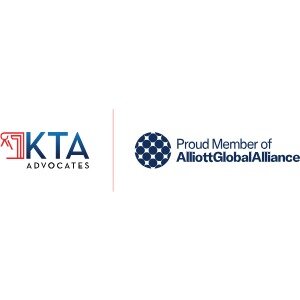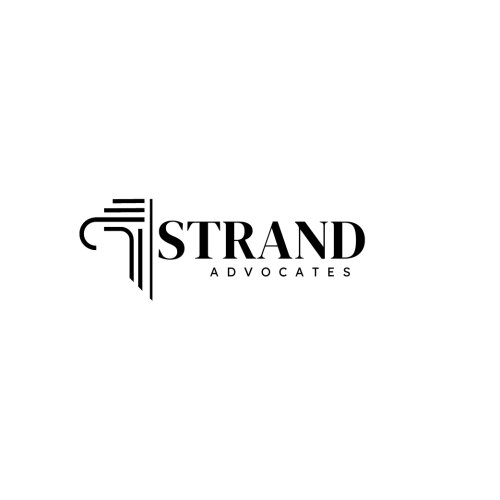Best Reinsurance Lawyers in Uganda
Share your needs with us, get contacted by law firms.
Free. Takes 2 min.
Or refine your search by selecting a city:
List of the best lawyers in Uganda
About Reinsurance Law in Uganda
Reinsurance in Uganda is an essential component of the insurance sector, designed to mitigate the risk carried by primary insurance companies. Essentially, it involves the transfer of a portion of the insurance liability from one insurer to a reinsurer. The objective is to create balance and stability in the insurance market, allowing companies to sustain significant claims without financial distress. Reinsurance in Uganda is governed by a mix of international standards and local regulations established by the Insurance Regulatory Authority of Uganda.
Why You May Need a Lawyer
There are several situations in which individuals or companies may require legal assistance in the field of reinsurance:
- Contractual Disputes: Legal assistance may be necessary when dealing with disagreements over the terms of reinsurance contracts.
- Claims Handling: Navigating complex reinsurance claims can be challenging without legal expertise.
- Regulatory Compliance: Ensuring that reinsurance agreements comply with Ugandan regulations and international standards.
- Company Reorganization: Legal guidance during mergers or acquisitions involving reinsuring entities.
- Risk Management: Assistance in developing strategies and tools to manage risks effectively.
Local Laws Overview
The reinsurance landscape in Uganda is shaped by several key legal considerations:
- Insurance Act: Provides the foundational legal framework for all insurance activities, including reinsurance in Uganda.
- Regulatory Oversight: The Insurance Regulatory Authority of Uganda supervises and regulates the reinsurance market to ensure compliance and market stability.
- Compulsory Cessions: Local insurers are often required to cede certain percentages of risks to licensed local reinsurers before accessing international reinsurance markets.
- Capital Requirements: Minimum capital requirements are set for reinsurers to ensure they have adequate financial backing.
- Dispute Resolution: Legal mechanisms are in place for resolving disputes that may arise in the reinsurance process.
Frequently Asked Questions
What is reinsurance, and why is it important?
Reinsurance is a process where an insurance company transfers part of its risk portfolio to another company to reduce the likelihood of paying a large claim. It provides financial protection and stability to the insurance industry.
How is reinsurance regulated in Uganda?
Reinsurance in Uganda is regulated by the Insurance Regulatory Authority, which ensures that all reinsurance activities comply with legal standards and that market practices promote stability and transparency.
When should I consider getting legal advice for reinsurance?
Consider seeking legal advice if you are entering into a reinsurance contract, facing a dispute over a claim, or need to ensure regulatory compliance.
Is it mandatory to work with local reinsurers in Uganda?
Yes, there are requirements for Ugandan insurers to cede certain proportions of risks to licensed local reinsurers, promoting local industry development.
Can a foreign company provide reinsurance services in Uganda?
Foreign reinsurers can offer services in Uganda, typically after local cession requirements are met, and they must comply with Ugandan regulations.
What are the common types of reinsurance contracts?
Two major types include proportional (risk sharing) and non-proportional (loss limit) reinsurance contracts. They cater to different coverage needs and risk profiles.
What happens if a reinsurer fails to pay a claim?
The primary insurer remains responsible for fulfilling the claim obligations to the policyholder. Legal mechanisms can be pursued for recovery from the reinsurer.
How can reinsurance affect insurance premiums?
Reinsurance can stabilize premiums by spreading risk and providing insurance companies with the financial ability to cover large claims without sudden rate hikes.
What should be included in a reinsurance contract?
Key elements include coverage terms, duration, premium rates, conditions for payment, termination clauses, and dispute resolution mechanisms.
Are there any tax implications for reinsurance in Uganda?
Reinsurance arrangements may have tax implications related to premium payments and claims recovery, which should be evaluated with legal advice.
Additional Resources
For more information and support, consider reaching out to:
- Insurance Regulatory Authority of Uganda: The official regulator with comprehensive resources on reinsurance practices and compliance.
- Licensed Reinsurers: Engage directly with registered reinsurers in Uganda for expert industry insights.
- Insurance Institutes and Professional Associations: These organizations offer educational resources and networking opportunities for reinsurance professionals.
Next Steps
If you're navigating reinsurance matters and need legal assistance, consider the following steps:
- Identify Your Needs: Determine the specific area of reinsurance law or issue requiring legal intervention.
- Consult Specialists: Seek out attorneys or law firms specializing in insurance and reinsurance law who are familiar with Ugandan requirements.
- Gather Documentation: Collect all relevant documents, such as contracts, correspondence, and regulatory notices, to facilitate the legal process.
- Engage in Dialogue: Open communication with involved parties can sometimes resolve issues before they escalate to legal proceedings.
- Stay Informed: Keep abreast of changes in reinsurance laws and regulations in Uganda to ensure ongoing compliance and risk management.
Lawzana helps you find the best lawyers and law firms in Uganda through a curated and pre-screened list of qualified legal professionals. Our platform offers rankings and detailed profiles of attorneys and law firms, allowing you to compare based on practice areas, including Reinsurance, experience, and client feedback.
Each profile includes a description of the firm's areas of practice, client reviews, team members and partners, year of establishment, spoken languages, office locations, contact information, social media presence, and any published articles or resources. Most firms on our platform speak English and are experienced in both local and international legal matters.
Get a quote from top-rated law firms in Uganda — quickly, securely, and without unnecessary hassle.
Disclaimer:
The information provided on this page is for general informational purposes only and does not constitute legal advice. While we strive to ensure the accuracy and relevance of the content, legal information may change over time, and interpretations of the law can vary. You should always consult with a qualified legal professional for advice specific to your situation.
We disclaim all liability for actions taken or not taken based on the content of this page. If you believe any information is incorrect or outdated, please contact us, and we will review and update it where appropriate.
Browse reinsurance law firms by city in Uganda
Refine your search by selecting a city.
















